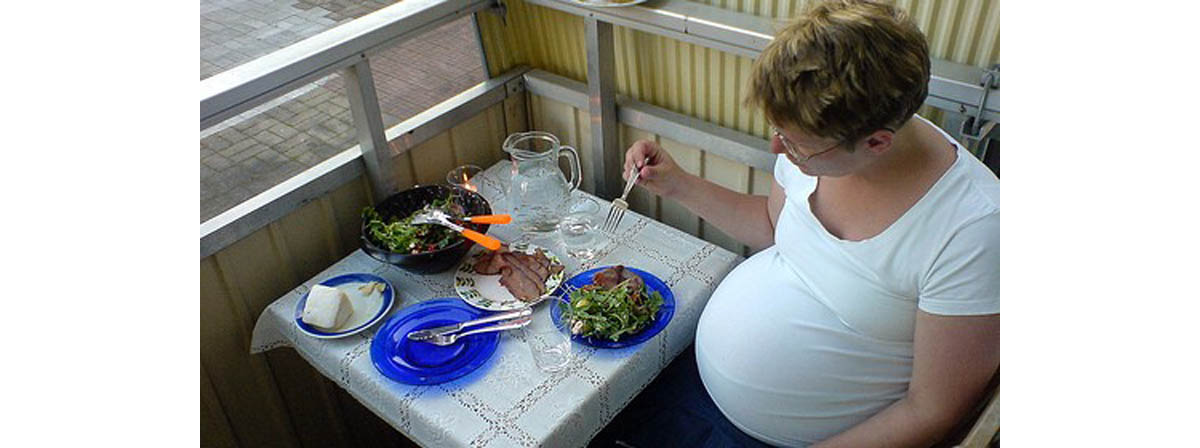Table of Contents
Light, menstrual-like cramping is very common during the early stages of the first trimester and shouldn't worry newly pregnant women. They should still mention any cramping to their doctor or midwife, however. Heavier cramping or cramps during the second and third trimesters are more of a cause for concern. If you are at all worried, a call to your healthcare provider is in order.

Vaginal bleeding is one of the most frightening experiences a pregnant woman can have, because miscarriage is bound to be the first thought that will occur to her. It is important to be aware that bleeding during pregnancy is actually quite common and it has many possible causes other than miscarriage. They include cervical cancer, a sensitive cervix, ectopic pregnancy (when the embryo implants outside of the uterus, usually in the fallopian tubes in which case it is called a tubal pregnancy), placenta previa and placental abruption.
Any vaginal bleeding during pregnancy should be reported to your healthcare provider.
Doctors will usually recommend an ultrasound if you suffer from vaginal bleeding. An ultrasound will show what is wrong and can be used to diagnose ectopic pregnancy, a placental abruption (later on in pregnancy) and miscarriage. In the case of an ectopic pregnancy, women might have nausea and vomiting, lower abdominal pain, neck and shoulder pain and rectal pain as well as bleeding.
Ultrasounds are more ambiguous in the very early stages of pregnancy though. If you go in at six weeks pregnant and no fetal heartbeat is detected, you might be having a miscarriage but it is also possible that there is a heartbeat but it was not visible. A trans-vaginal ultrasound or a repeated scan at a later date will offer more clarity. Your embryo will officially become a fetus at eight weeks, and trans-abdominal ultrasounds will show a heartbeat more clearly at that stage.
Diet During Pregnancy
A healthy, responsible diet should be the priority of any pregnant woman — that much is clear to everyone. But what does that mean? Many myths surround the topic of eating during pregnancy.
Healthy-weight women should generally gain between 25 and 35 pounds during their pregnancy. They only require 200 to 300 more daily calories than they did before they conceived, so pregnancy is no excuse for excessive eating. No pregnant woman should starve herself to achieve weight loss, but overweight or obesity during pregnancy increases the risk of complications including gestational diabetes and preeclampsia.
Recent research shows that moms to-be who are overweight or obese can safely go on a limited weight loss diet by restricting calories, avoiding junk food, and focusing on eating vegetables, fruit, whole grains and pulses.
This form of “dieting” is more about reducing excessive weight gain during pregnancy than losing weight — not a bad goal, considering that 20 to 40 percent of expectant mothers in the US and Europe gain more than the recommended amount of weight during their pregnancy. A London-based research team that followed 7,000 pregnant women found that this type of dieting does not affect the baby's birth weight and reduces the number of weight-related pregnancy complications.
Overweight or obese pregnant women should only ever engage in dieting under medical supervision, however.
We should note that any pregnant woman can develop preeclampsia or gestational diabetes. Being overweight or obese is a risk factor, but that does not mean other categories are exempt. Detecting these, and other, conditions early on is one of the main reasons prenatal care is so important. Screening tests will look for both these conditions.
Gestational diabetes often has no noticeable symptoms, and this is why your doctor will perform a glucose test to check how your body regulates blood sugar levels. This is usually carried out between 24 and 28 weeks pregnancy. If symptoms do manifest, they usually include excessive thirst and urination, blurred vision and fatigue.
Preeclampsia is a very serious condition that involves high blood pressure and protein spillage in the urine. The only cure is delivering the baby. Severe headaches, swelling (edema) in the face and ankles, visual disturbances and abdominal bloating are the symptoms to watch out for. Pregnant women who recognize these symptoms should head to hospital.
- Photo courtesy of Margus Kulden by Flickr : www.flickr.com/photos/kulden/7442213916/
- Photo courtesy of Tomas Hellberg by Flickr : www.flickr.com/photos/tomhe/550608894/


Your thoughts on this